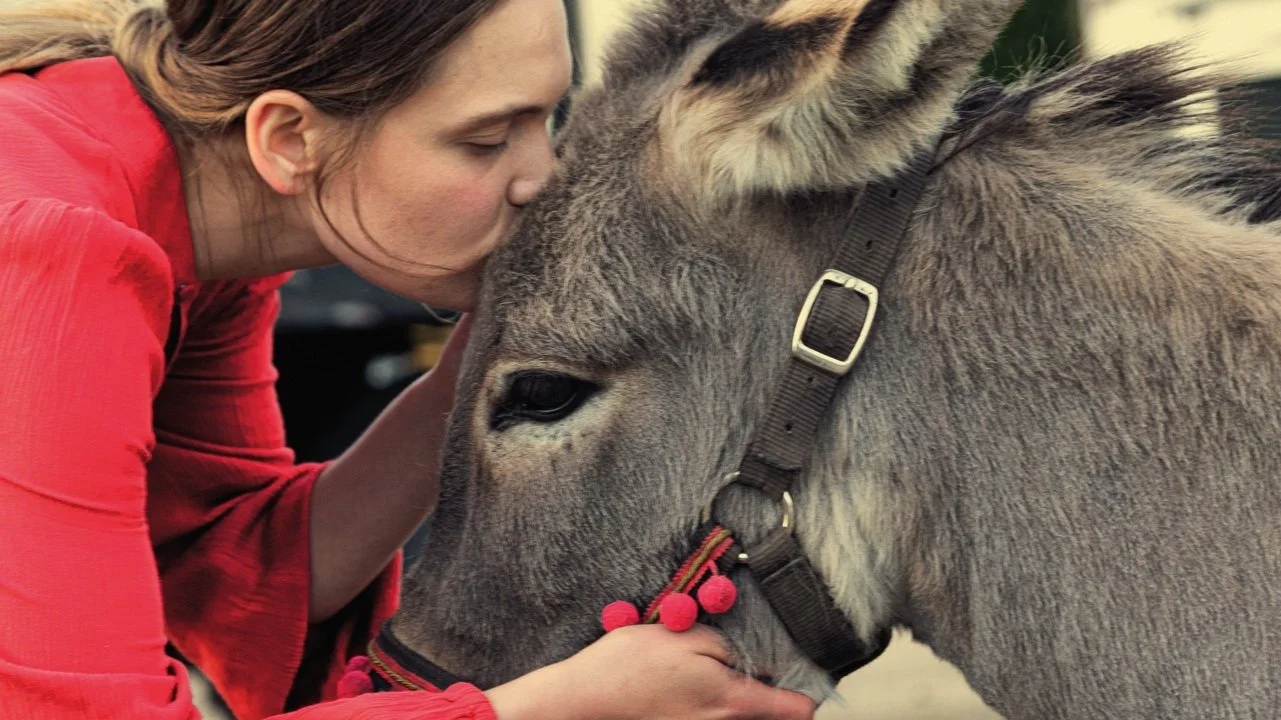EO
Poland’s Jerzy Skolimowski surprises us with an Oscar-nominated drama about a donkey, inspired by a Robert Bresson classic.
When considering the career of the director Jerzy Skolimowski, who comes from Lodz, the word that comes to mind is unpredictable. His very first features were Rysopis (Identification Marks: None) and its sequel Walkover both of which appeared in 1965 and which found him playing the leading role himself. Unsurprisingly they were made in Poland. However, his fourth film, which won the Golden Bear at the 1967 Berlin Film Festival was, as its title Le départ indicates, in French (a language that Skolimowski did not speak). He then went to Italy to make The Adventures of Gerard which was in fact his first film in English being a mock-heroic tale based on the Conan Doyle stories about Brigadier Gerard. But the film which first earned Skolimowski international acclaim was 1970’s Deep End which was again in English, as was his other most well-known film, 1978’s The Shout. Seven years later he would make his one American work, 1985’s The Lightship. But at the end of the 1980s he took a seventeen-year break from directing, albeit continuing to write for the cinema and taking some acting roles too. He returned to directing in 2008 which in due course led to a UK release for his 2010 film Essential Killing but after that we heard no more of him. Even so he has continued to function in all his capacities in Poland including work for television. Nevertheless, the wider release of EO, the new feature film directed by Skolimowski and co-written by him and his wife Eva Piaskowska, marks for us the sudden reappearance of a somewhat forgotten artist and it is all the more unexpected because Skolimowski is now 84.
EO is a singular piece that has gained much attention. The central figure is not a human being but an animal. That might suggest that it is a sentimental work or, if not exactly that, something to appeal to children in the same way that youngsters featured strongly among readers drawn to that classic tale of a horse, Anna Sewell’s 1877 novel Black Beauty. But in point of fact Eo is at heart an adult tale which in showing the experiences of a donkey actually offers a dark view of humanity, its portrayal of modern life being essentially harsh. Indeed, Skolimowski has indicated that his film was inspired by his admiration for Robert Bresson’s 1966 film Au Hasard, Balthazar which also expressed a view of human suffering by tracing the life of a donkey.
If that influence is crystal clear, it yet needs to be said that Eo is significantly different in that all of Bresson’s films reflected his religious beliefs and there is no equivalent feeling in Skolimowski’s film. Nevertheless, the bleakness of the work, along with its episodic narrative as the donkey passes from owner to owner and its anguish at the cruelty of humans, are elements closely shared with Bresson’s film. Even though the donkey’s experiences dictate the storyline, the very fact that the animal is acted on by fate invites us to see this as a work in which the animal is also representative of any and every victim on whom suffering happens to be inflicted. That gives the film a wider concern than was found in those impressive documentaries of recent times, Gunda and Cow, both of which were specifically focused on the lives of animals destined for slaughter. Unlike them, but like Bresson’s film, this is a work that can be considered to be a parable.
Regardless of any echoes of Au Hasard. Balthazar, Eo is distinctively individual without being beyond criticism. Visually, for example, there is an overelaborate use of filters, red ones particularly (this is already apparent in the film’s opening sequence set in a circus). The humans involved are those who cross the donkey’s path but, if the role of the sympathetic trainer at the circus, Kasandra (Sandra Drzymalska), works well in this respect, there are late scenes less well judged. In particular a subplot involving a Countess (Isabelle Huppert oddly cast in a film which otherwise favours unknown players) and her stepson (Lorenzo Zurzolo) takes up more time than is justified being only incidental to the donkey’s fate. It is also the case that the film’s ending can but feel inevitable. Even so, the film stands as a deeply felt comment on life and, although extracts from works by Beethoven and Verdi sound somewhat out of place when heard on the soundtrack late on, the film’s own music score by Pawel Mykietyn is splendid, a definite asset in a work out of the ordinary.
MANSEL STIMPSON
Cast: Sandra Drzymalska, Isabelle Huppert, Lorenzo Zurzolo, Mateusz Kosciukiewicz, Tomasz Organek, Lolita Chammah, Agata Sasinowska, Anna Rokita, Michał Przybyslawski, Gloria Iradukunda, Piotr Szaja.
Dir Jerzy Skolimowski, Pro Ewa Piaskowska and Jerzy Skolimowski, Screenplay Ewa Piaskowska and Jerzy Skolimowski, Ph Michał Dymek, Pro Des Mirosław Konciewicz, Ed Agnieszka Glinska, Music Paweł Mykietyn, Costumes Katarzyna Lewinska, Sound Radoslaw Ochnio.
Skopia Film/Alien Films/Moderator Inwestycje/HanWay Films-BFI Distribution.
88 mins. Poland/Italy. 2022. US Rel: 18 November 2022. UK Rel: 3 February 2023. Cert. 15.


